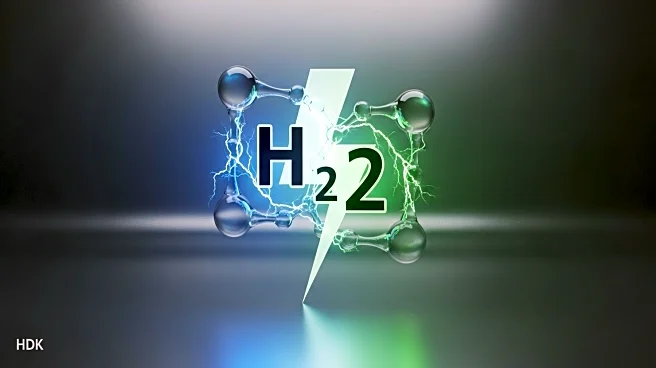What is the story about?
What's Happening?
HyFlux, a clean tech company, is collaborating with the University of Sheffield Advanced Manufacturing Research Centre (AMRC) to develop a cryogenic cooling system for hydrogen-electric aircraft. The project, named SUPERCOOL, aims to enable lightweight, high-efficiency cooling necessary for superconducting motor operation in zero-emission propulsion systems. HyFlux will oversee project delivery, system architecture, and commercial strategy, while AMRC will support engineering validation and integration. The Institute for Advanced Automotive Propulsion Systems (IAAPS) will provide test infrastructure to qualify the cooling system's performance under realistic hydrogen conditions. The Aerospace Technology Institute (ATI) Programme is funding £1.1 million towards the project, with the remaining amount financed by HyFlux.
Why It's Important?
The development of the SUPERCOOL project is a significant step towards achieving zero-emission propulsion in aviation, which is crucial for reducing the environmental impact of air travel. By integrating cutting-edge technology and expertise from various institutions, the project aims to create a sustainable solution for future aircraft propulsion systems. This initiative not only supports the UK's position as a leader in sustainable aerospace innovation but also contributes to global efforts in decarbonizing transportation. The successful implementation of this technology could lead to broader adoption of hydrogen-electric systems in both aerospace and maritime sectors.
What's Next?
The collaboration between HyFlux and AMRC will focus on designing, manufacturing, and testing the cryogenic cooling system components, such as the heat exchanger, using computational fluid dynamics to ensure efficiency. The project will utilize IAAPS's liquid hydrogen test facility for ground-based validation, which is essential for future flight demonstrations. The initiative has garnered support from local and national stakeholders, emphasizing the importance of investment in hydrogen technologies for a greener future.

















